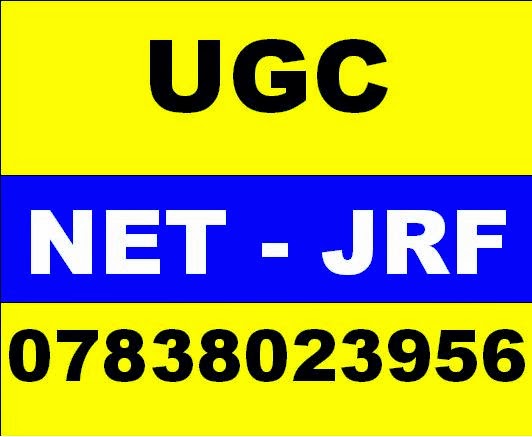Unit I: Information, Information Science, Information Society, Information as a Resource / Commodity, Information Transfer Cycle (Generation, Collection, Storage, and Dissemination), Role of Information (In Planning, Management, Socio-Economic Development, Technology Transfer), Communication (Channel, Barriers), Intellectual Property Rights (Concept, Copyright, Censorship, Print and Non Print Media), Library and Information Policy at the National Level
Unit II: Laws of Library Science, Library Resource Sharing and Networking, Library Movement, Library Legislation in India, Library Extension Services, Library and Information Science Education in India, Library and Information Profession, Library Association in India, UK and USA, ILA, IASLIC, IATLIS, SIS, LA, ASLIB, SLA, ALA, Library Association Organization at International Level, FID, IFLA, UNESCO
Unit III: Sources of Information (Primary, Secondary and Tertiary. Documentary and Non Documentary), Reference Sources {Encyclopaedias, Dictionaries, Geographical Sources, Biographical sources, Year Books / Almanacs, Directories and Handbooks, Statistical (Salient features and evaluation)}, Bibliographical Sources {Bibliographies, Union Catalogue, Indexing and Abstracting Journals (Salient features and Evaluations)}, E-documents (e-books, e-journals), Databases {Bibliographic, Numeric and Full text (Evaluation)}
Unit IV: Reference and Information Services, Referral Services, Bibliographic Service, Indexing and Abstracting Services, CAS, SDI, Digest Service, Trend Report, Online Services, Translation Services, Reprographic Services
Unit V: Organization of Knowledge / Information, Modes of Formation of Subjects, Library Classification (Cannon and Principles), Library Classification Schemes (DDC, UDC, CC), Library Cataloguing (Cannons and Principles), Library Cataloguing Codes (CCC and AACR 2), Bibliographic Records, Intellectual Standards (ISBD, MARC and CCF), Indexing (Pre and Post co-ordinate), Vocabulary Control (Thesaurus and List of Subject Heading), Databases (Search Strategies and Boolean Operators), Knowledge Management
Unit VI: Management (Principles, Functions and School of Thoughts), Planning, Organization Structure, Decision Making, System Study (Analysis, Evaluation and Design), Collection Development (Books, Serials, non books Material), Selection, Acquisition, Maintenance, ISBN, ISSN, Cataloguing-in-Publication (CIP), Human Resource Management, Manpower Planning, Job Analysis, Job Description, Selection, Recruitment, Motivation, Training and Development, Staff Manual, Leadership and Performance Evaluation, Delegation of Authority, Financial Management, Resource Generation, Types of Budgeting, Cost and Cost Benefit Analysis, PERT, CPM, Library Building and Equipments, Performance Evaluation of Libraries/Information Centers and Services, Marketing Information Product and Services, Total Quality Management (TQM)
Unit VII: Information Technology, Components of Information Technology, Impact of IT on Society, Computer Hardware, Computer Software, Storage Devices, Output / Input Devices, Telecommunications, Transmission Medias, Switching Systems, Bandwidth, Multiplexing, Modulation, Protocols, Wireless Communications, Fax, Email, Tele conferencing / video conferencing, Bulleting Board Service, Teletex, Videotex, Voice Mail, Networking (Concept) Networking Topologies, Network Types (LAN, MAN, WAN), Hypertext, Hypermedia, Multimedia, Integrated Service Digital Network (ISDN), Open Systems Interconnections (OSI)
Unit VIII: Library Automation, Areas of Library Automation, Planning Library Automation, Hardware and Software Selection for Automation, OPAC, Networks, ERNET, NICNET, DELNET, JANET, BLAISE, OCLC, INFLIBNET, Internet, Components of Internet, Internet Services (Browsing, Web Browsers, Search Engines, Meta Data Digital Object Identifier (DOI), National and International Information Systems, NISSAT, NASSDOC, INSDOC, DESIDOC, INIS, AGRIS, MEDLARS, INSPEC.
Unit IX: Types of Research (Basic, Applied, Interdisciplinary), Research Design, Scientific Method, Hypothesis, Data Collection, Sampling, Methods of Research (Historical, Descriptive, Case Study, Survey, Comparative and Experimental), Statistical Methods, Data Analysis, Report Writing, Research Methods in Library and Information Science and Services, Bibliometrics
Unit X: Types of Libraries {National, Public, Academic, and Special (Objectives, structures and functions), Digital Libraries (Concept), Virtual Libraries (Concept), Types of Users, User Studies, User Education, Role of UGC in the Growth and Development of libraries and information centers in institutes of Higher Education in India, Raja Rammohun Roy Library Foundation (RRRLF)
“ugc”
“net”
“ugc net”
“net exam”
“net entrance”
“net jrf”
“net jrf”
“ugc net syllabus”
“ugc
net jrf entrance exam coaching classes institute”
“ugc net jrf computer science exam coaching”
“ugc net jrf commerce exam coaching”
“ugc net jrf management exam coaching”
“ugc net jrf economics exam coaching”
“ugc net jrf mass communication exam coaching”
“ugc net jrf education exam coaching”
“ugc net jrf history exam coaching”
“ugc net jrf psychology exam coaching”
“ugc net jrf hindi exam coaching”
“ugc net jrf political science exam coaching”
“ugc net jrf human resource exam coaching”
“ugc net jrf library & information science exam coaching”
“ugc net jrf computer science exam coaching”
“ugc net jrf coaching exam coaching”
“ugc net jrf computer science exam coaching”
“ugc net jrf commerce exam coaching”
“ugc net jrf management exam coaching”
“ugc net jrf economics exam coaching”
“ugc net jrf mass communication exam coaching”
“ugc net jrf education exam coaching”
“ugc net jrf history exam coaching”
“ugc net jrf psychology exam coaching”
“ugc net jrf hindi exam coaching”
“ugc net jrf political science exam coaching”
“ugc net jrf human resource exam coaching”
“ugc net jrf library & information science exam coaching”
“ugc net jrf computer science exam coaching”
“ugc net jrf coaching exam coaching”
“ugc net jrf study material”
“ugc”
“ugc”
“net”
“ugc net”
“net exam”
“net entrance”
“net jrf”
global teachers academy
D-2, Arjun Nagar Safdarjung Enclave, New Delhi
Near Green Park Metro Station
Ph. 078-380-239-56 , 078-380-243-65
http://www.gtah.net/
“net jrf”
global teachers academy
D-2, Arjun Nagar Safdarjung Enclave, New Delhi
Near Green Park Metro Station
Ph. 078-380-239-56 , 078-380-243-65
http://www.gtah.net/
www.ugcnetd.com
https://www.facebook.com/ugcnetcoachingdelhiindia
https://www.facebook.com/gtadh?ref=hl
https://www.facebook.com/ugcnetcoaching.delhi
https://www.facebook.com/ugcnetcoachingdelhiindia
https://www.facebook.com/gtadh?ref=hl
https://www.facebook.com/ugcnetcoaching.delhi
http://www.gtah.net/about-us.php
http://www.gtah.net/ugc-net.php
http://www.gtah.net/jnu-du.php
http://www.gtah.net/enquiry-now.php
http://www.gtah.net/results.php
http://www.gtah.net/contact-us.php
http://www.gtah.net/ugc-net.php
http://www.gtah.net/jnu-du.php
http://www.gtah.net/enquiry-now.php
http://www.gtah.net/results.php
http://www.gtah.net/contact-us.php
https://plus.google.com/+Ugcnetd/posts
|
https://www.facebook.com/ugcnetcoachings
http://in.linkedin.com/in/ugcnetcoaching http://ugcnetjrfcoaching.wordpress.com |
|
http://ugcnetd.wordpress.com
|
|
http://ugcnetcoachingugc.wordpress.com/
|
|
http://ugcnetcoachings.wordpress.com/
|
|
http://ugcnetjrfcoachings.blogspot.in
|
|
http://ugcnetgtah.blogspot.in/
|
|
http://netexamcoaching.blogspot.in/
|
|
http://ugcnetpsychologycoaching.blogspot.in/
|
|
http://ugcnetcommercecoaching.blogspot.in/
|
|
http://ugcnetmanagementcoaching.blogspot.in/
|
|
http://ugcnetexamcoaching.blogspot.in/
|
|
http://ugcnetenglishugc.blogspot.in/
|
|
http://ugcnetcoachings.blogspot.in/
|
|
http://ugcnetonlinecoachng.blogspot.in/
|
|
https://www.youtube.com/watch?v=OMJnpTIwKuY
|
|
https://www.youtube.com/watch?v=yIIl90pCwAI
|
|
https://www.youtube.com/watch?v=BfgfKMwfpsk
|
|
https://www.youtube.com/watch?v=z8oNow4w9-A
|
|
https://www.youtube.com/watch?v=yMRtgqHPnfA
|
|
https://www.youtube.com/watch?v=mzW2NoQZUbM
|
|
https://www.youtube.com/watch?v=ePCdZjXmVgc
|
|
https://www.youtube.com/watch?v=XV9rT3b2LZI
|
|
https://www.youtube.com/watch?v=2UouOJJtCyc
|
|
https://www.youtube.com/watch?v=m1kzxQVJdds
|
|
https://www.youtube.com/watch?v=0OsSCh8wpSU
|
|
https://www.youtube.com/watch?v=owZeCkfMas8
|
|
https://www.youtube.com/watch?v=Lj0m3Bf8D5A
|
|
https://www.youtube.com/watch?v=UOuqF5DcEUw
|
|
https://www.youtube.com/watch?v=PDb46OwJESs
|
|
https://www.youtube.com/watch?v=34fYjBW_L0M
|
|
https://www.youtube.com/watch?v=lCc8lY8PpjU
|
